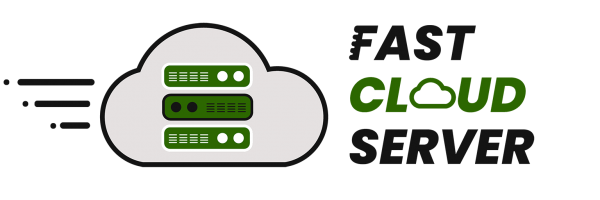How cPanel Web Hosting Operates
For your info, it's good to know that most of the cPanel-based hosting offerings on the present-day website hosting marketplace are generated by a quite insubstantial marketing segment (when it comes to annual cash flow) called reseller hosting. Reseller web hosting is a type of a small-sized business segment, which furnishes a great amount of different web hosting brands, yet furnishing strictly the same solutions: mainly cPanel web hosting services. This is bad news for everyone. Why? Because at least ninety eight percent of the web hosting offers on the entire web hosting marketplace furnish the same solution: cPanel. There's no variety at all. Even the cPanel hosting price tags are similar. Very similar. Leaving for those who demand a top web hosting service virtually no other web hosting platform/website hosting CP alternative. Thus, there is only one single fact: out of more than two hundred thousand web hosting brand names around the world, the non-cPanel based ones are less than 2 percent! Less than two percent, mind that one...
200,000 "hosting vendors", all cPanel-based, yet distinctly labeled
Unlimited bandwidth
5 websites hosted
30-Day Free Trial
Unlimited bandwidth
Unlimited websites hosted
30-Day Free Trial
The hosting "variety" and the website hosting "offerings" Google reveals to all of us come down to merely one and the same thing: cPanel. Under 100's of 1000's of different hosting trademarked names. Assume you are simply an average fellow who's not very well acquainted with (as the majority of us) with the web page making procedures and the web hosting platforms, which actually power the different domains and web sites. Are you prepared to make your hosting choice? Is there any web hosting alternative you can decide upon? Of course there is, today there are more than 200,000 web hosting service providers in existence. Formally. Then where is the problem? Here's where: more than 98 percent of these more than two hundred thousand different web hosting brand names in the world will offer you exactly the same cPanel web hosting CP and platform, dubbed in a different way, with the very same price tags! WOW! That's how large the variety on the current web hosting marketplace is... Period.
The hosting LOTTERY we are all part of
Simple math reveals that to stumble upon a non-cPanel based web hosting service provider is a huge strike of luck. There is a less than 1 in fifty chance that a thing like that will happen! Less than 1 in fifty...
The upsides and downsides of the cPanel hosting solution
Let's not be cruel with cPanel. After all, in the years 2001-2004 cPanel was trendy and possibly met all website hosting market demands. In short, cPanel can achieve the desired result if you have just one domain to host. But, if you have more domains...
Problem Number 1: An imbecilic domain folder setup
If you have 2 or more domain names, however, be ultra watchful not to delete completely the add-on ones (that's how cPanel will dub each subsequent hosted domain name, which is not the default one: an add-on domain). The files of the add-on domains are quite easy to delete on the web hosting server, because they all are located into the root folder of the default domain name, which is the very famous public_html folder. Each add-on domain name is a folder placed inside the folder of the default domain. Like a sub-folder. Next time attempt not to remove the files of the add-on domain names, please. Decide for yourself how terrific cPanel's domain name folder structure is:
public_html (here my-default-domain.com is situated)public_html/my-family (a folder part of my-default-domain.com)
public_html/my-second-domain.com (an add-on domain name)
public_html/my-second-wife (a folder part of my-default-domain.com)
public_html/my-second-wife.net (an add-on domain name)
public_html/my-third-domain.com (an add-on domain)
public_html/my-third-wife (a folder part of my-default-domain.com)
public_html/my-third-wife.net (an add-on domain name)
public_html/rebeka (a folder part of my-default-domain.com)
public_html/rebeka.my-third-wife.net (a sub-domain of an add-on domain)
Are you becoming puzzled? We positively are!
Negative Aspect Number Two: The very same e-mail folder structure
The e-mail folder arrangement on the hosting server is precisely the same as that of the domain names... Making the same mistake twice?!? The sysadmin chaps strongly reinforce their faith in God when dealing with the e-mail folders on the email server, hoping not to muck things up too gravely.
Shortcoming No.3: A sheer lack of domain administration GUIs
Do we have to refer to the utter shortage of a modern domain management interface - a location where you can: register/migrate/renew/park or manage domains, change domain names' Whois information, secure the Whois info, alter/create name servers (DNS) and DNS resource records? cPanel does not offer such a "contemporary" user interface at all. That's an immense downside. An unforgivable one, we want to point out...
Weakness Number Four: Multiple user login places (minimum 2, maximum three)
What about the demand for an extra login to use the billing, domain and technical support administration software solution? That's apart from the cPanel login credentials you've been already given by the cPanel-based hosting supplier. Now and then, on the basis of the billing transaction platform (principally meant for cPanel exclusively) the cPanel hosting company is using, the enthusiastic customers can wind up with 2 additional logins (1: the invoice transaction/domain administration software solution; 2: the ticket support user interface), ending up with an aggregate of 3 user login places (counting cPanel).
Disadvantage Number 5: 120+ web hosting Control Panel sections to become familiar with... quickly
cPanel presents for your consideration more than one hundred and twenty sections inside the web hosting Control Panel. It's a terrific idea to get to know each and every one of them. And you'd better become acquainted with them promptly... That's way too insolent on cPanel's side.
With all due recognition, we have a rhetorical question for all cPanel-based hosting suppliers:
As far as we know, it's not the year 2001, is it? Mind that one as well...
